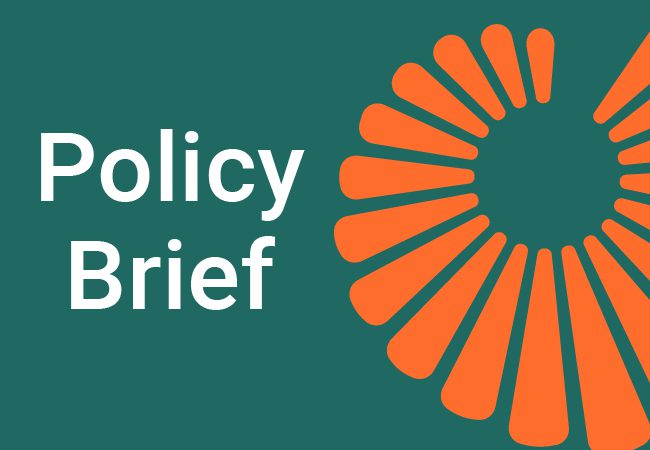ESRI Report examines the Role of Welfare and Work on Ireland’s Poverty Reduction Targets

On Monday, 13 June, the Economic and Social Research Institute published a new report, commissioned by the Department of Social Protection, which explores measures that may lead to a national consistent poverty target of 2% by 2025 being achieved.
An overarching theme of the report was that to decrease poverty, a mix of policy measures such as increasing female labour force participation and spending more on benefits targeting children is required.
The Roadmap for Social Inclusion 2020-2025 (‘The Roadmap’), is the current national strategy for poverty reduction and improved social inclusion in Ireland and includes the headline target of reducing the rate of consistent poverty to 2% or lower by 2025. It also recommits to a previous target for 2020 of raising 70,000 children (aged 0-17 years) out of consistent poverty. There has been some progress made with consistent poverty falling to 4% in the most recent official poverty data for Ireland (SILC 2021).
This study sets out to assess how changes in employment and social transfers might contribute to reaching the 2% consistent poverty target. It also examines how increases in different types of social welfare packages are likely to impact poverty rates and the impact of the increase in employment among various under-represented groups.
The consistent poverty measure identifies people that are at risk of poverty (AROP). This is the share of people with an equivalised income below 60% of the national median income who are experiencing basic deprivation (enforced lack of at least two basic goods and services out of a list of 11).
The study addresses 4 research questions including the level of ‘at risk of poverty’ (AROP) and deprivation and their rates across social risk groups; the impact of changes to social transfers on deprivation and AROP rates; and both labour market reforms and social transfer reforms and their impacts on AROP and deprivation rates.
At risk of poverty (AROP) and deprivation over time and high-risk groups
The stronger the overlap between income poverty and deprivation, the more likely it is that policy measures to address income poverty will also reduce deprivation and therefore consistent poverty. Lone parents and their children, working-age adults with disabilities and their children experienced distinctively high rates of income poverty, deprivation and consistent poverty, and in 2019 these two groups accounted for just over 50% of those in consistent poverty. Therefore, policies addressing income poverty among these groups are also likely to affect many of those in deprivation and thus their exposure to consistent poverty.
Implications for policy based on the research question’s findings
Of the labour market reforms considered, the most effective measure in reducing poverty was increasing female labour force participation and hours worked to match those of men with similar characteristics. While the purpose of the report was not to identify the range of policy actions that would increase labour market participation, there is an extensive body of evidence showing the importance of supports such as Early Years and School Age Care, adult care support, education, training and pre-employment and job supports for those who are currently excluded.
Findings from social transfers reforms show that transfers targeting children and their families (Qualified Child Increase, Working Family Payment) produce the largest reduction in child poverty as well as for the overall population. It is likely that a package of measures targeting both employment and social transfers is needed to address poverty reduction targets. The report also concludes that benefit reform to the value of €1bn per annum would not result in substantial progress towards a consistent poverty rate of two per cent if executed alone. It is likely that this type of progress would require a mix of policies to address low market income and welfare reform.
Although out of its exact scope, the report highlights findings from published research from Maître et al. (2020) which points to the role of non-cash benefits such as medical cards and Early Years and School Age Care in addressing material deprivation. Also, broader policies to reduce costs of living will have a large impact on families with low levels of resources, this includes actions on affordable care, affordable housing, and access to healthcare. The National Economic and Social Council points to the provision of public services as particularly important for the quality of life and social inclusion of the most disadvantaged groups and for addressing child poverty
Early Childhood Ireland will be monitoring the progress of these issues for our sector. Our Policy Team is available to answer questions on the topics raised here.









